Chad
The military authorities in Chad announced a general amnesty on Thursday, notably for police and military personnel, in the wake of a demonstration that was put down in a bloodbath just over a year ago.
Prior to its adoption, the proposed amnesty had sparked an outcry in the ranks of the opposition and NGOs, who accused the government of shielding from justice the police and military officers responsible for a "massacre".
The National Transitional Council (CNT) adopted the amnesty law with 92.4% of the members of this legislative body appointed by General Mahamat Idriss Déby Itno, who was proclaimed transitional president by the army two and a half years ago.
A total of 145 national councillors voted in favour, six against and two abstained, Abderaman Koulamallah, Minister for National Reconciliation, told AFP.
As part of a desire for "national reconciliation", according to the text, the law applies to "all Chadians, civilian and military".
On 22 October 2022, demonstrators protested against the retention of power by the military, who had just extended by two years an 18-month transition at the end of which they had initially promised to return power to civilians through elections.
-Black Thursday
Around fifty people were killed that day, according to the authorities, and between a hundred and 300 according to the opposition and local and international NGOs, almost all of them young demonstrators shot dead by the military and police, mainly in N'Djamena.
A few days after what the opposition called "Black Thursday", the government announced that "several members of the security forces were also killed that day". But a year later, the transitional government was only talking about six, including three police officers in the capital.
To date, more than 400 young demonstrators, among at least 600 imprisoned, have been sentenced to prison for "insurrection", before being pardoned by Mahamat Déby and then released. But no member of the security forces has been publicly incriminated, and no arrest has been announced among them.
On 20 October 2022 and in the days that followed, more than 600 young demonstrators, including 83 minors, were arrested, according to the government, and taken to the sinister Koro Toro prison in the middle of the desert.
After a month and a half in this penitentiary usually reserved for Boko Haram and Islamic State (EI) detainees, more than 400 had been sentenced in a mass trial without lawyers.
The opposition and local and international NGOs reported that between 1,000 and 2,000 people had been arrested in large-scale roundups, dozens of whom have since been reported missing, victims of "extra-judicial executions" or while being transported to Koro Toro.
Others were subjected to acts of "torture".On 20 April 2021, General Mahamat Idriss Déby Itno, then aged 37, was proclaimed president at the head of a junta of 15 generals, following the death of his father Idriss Déby Itno, who was killed by rebels on his way to the front after 30 years of ruling this Central African country with an iron fist.
-Unfair trials
Mahamat Déby immediately promised to return power to civilians through elections at the end of an 18-month transition period, but 18 months later the authorities extended the transition period by two years on the recommendation of a "National Dialogue" boycotted by a large majority of the opposition and some of the most powerful rebel groups.
"Although the authorities immediately promised an investigation, all we have seen so far are unfair trials of demonstrators (...) and the absence of serious investigations into those allegedly responsible for the killings", Amnesty International deplored on 20 October.
"We maintain our demand for an international enquiry", Adoum Mahamat Boucar, President of the Chadian Human Rights League (LTDH), told AFP, criticising a "culture of impunity".
A referendum is scheduled for 17 December to adopt a new constitution paving the way for presidential and legislative elections in 2024. The vast majority of opposition parties are already calling for a boycott.



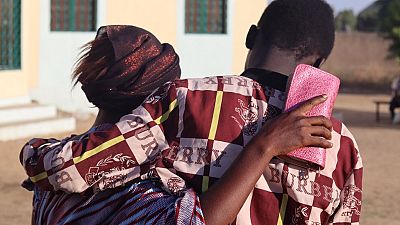

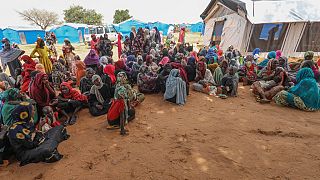
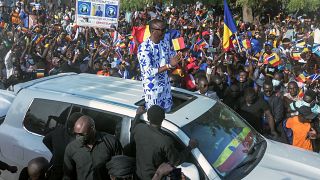
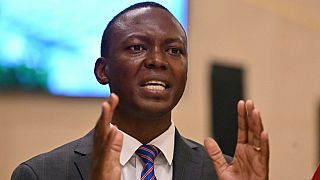
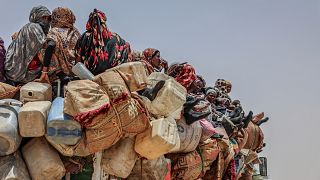
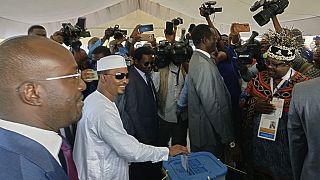
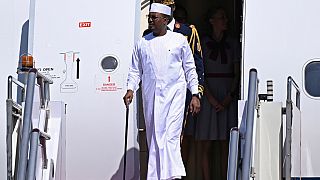



02:35
Central African Republic's major rebel groups to disarm, dissolve
Go to video
Togo protest crackdown raises fears of worsening political crisis
Go to video
Tunisia sentences prominent opposition leader to 14 years in prison
01:01
Chad’s former Prime Minister appeals to Macron after two months in detention
02:21
Ivorian diaspora in Paris demands free and inclusive elections ahead of October vote
02:16
Kenya's William Ruto faces growing discontent over economy and police brutality